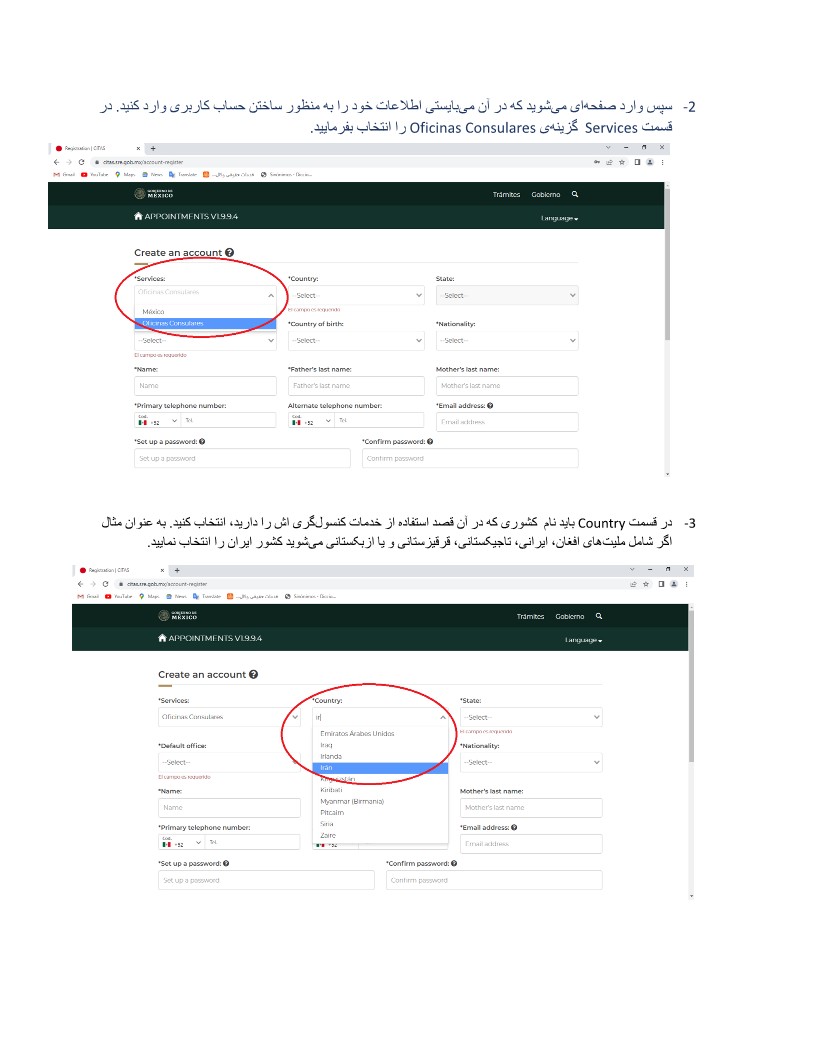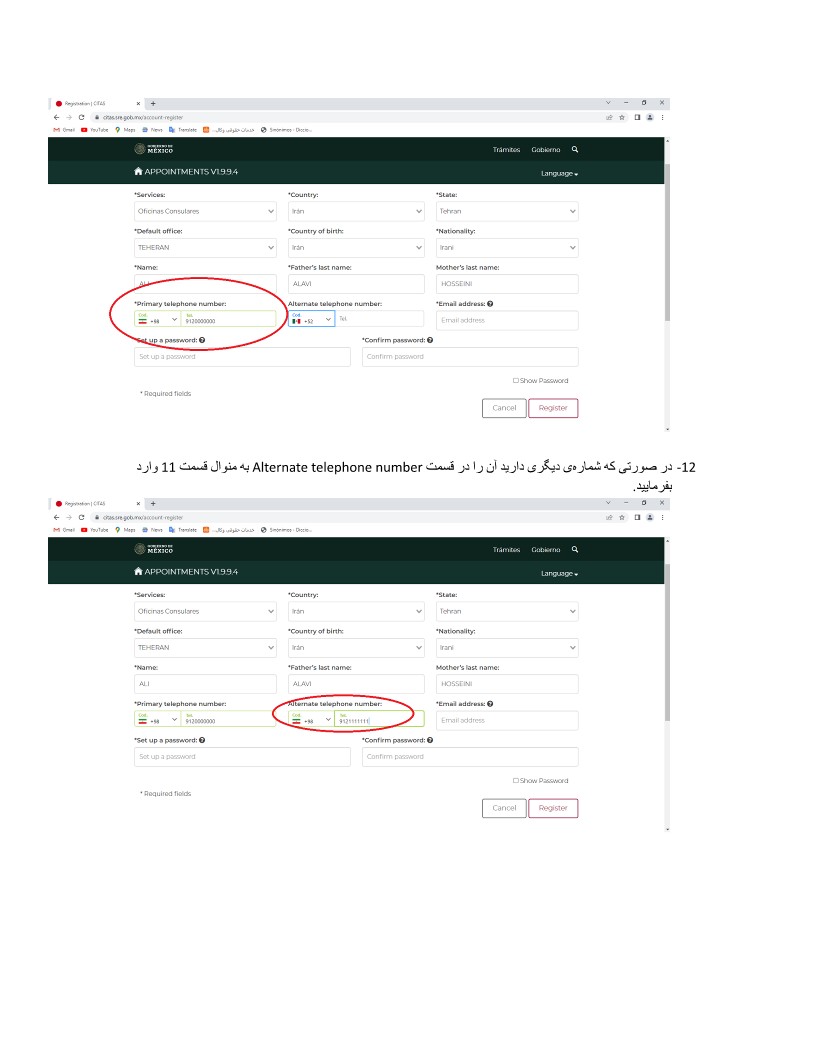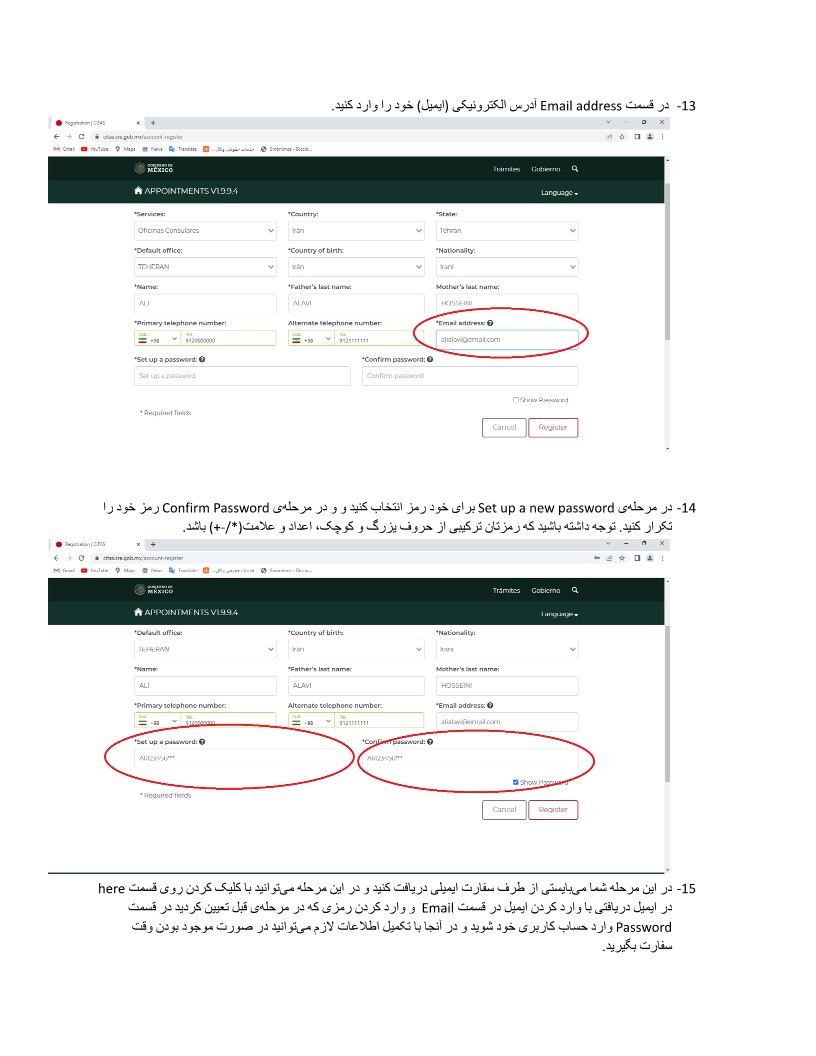PODERES NOTARIALES
INTRODUCCIÓN
De conformidad con el artículo 5, inciso f, de la Convención de Viena sobre Relaciones Consulares (CVRC), dentro de las funciones consulares se comprende la de actuar en calidad de Notario. La Ley Orgánica de la Administración Pública Federal, en su artículo 28, señala que por conducto de los Agentes del Servicio Exterior Mexicano, se ejercerán funciones notariales. La Ley del Servicio Exterior Mexicano (LSEM) contempla en su artículo 44, fracción IV, que corresponde a los jefes de representaciones consulares ejercer funciones notariales en los actos y contratos celebrados en el extranjero que deban ser ejecutados en territorio mexicano, en los términos señalados en su Reglamento. Su fe pública, será equivalente en toda la República a la que tienen los actos de los Notarios en el Distrito Federal.
La función notarial es de carácter limitado por disposición del artículo 44, fracción IV de la LSEM; por consiguiente, no se desempeñan todas las funciones que efectúa un Notario Público en territorio nacional. El artículo 85 del reglamento de dicha ley señala expresamente que cuenta con la facultad para expedir poderes notariales. En este sentido, la función notarial consular está condicionada a la autorización de actos jurídicos que vayan a ser ejecutados o a tener efectos dentro del territorio nacional; los documentos notariales expedidos por los cónsules mexicanos, surten efectos inmediatos, sin necesidad de legalización o protocolización alguna.
Los actos destinados a surtir efectos en el Estado receptor o en un tercer país deben ser autorizados ante Notario Público de la localidad.
TIPOS DE PODERES
I. PODER GENERAL
a) Pleitos y Cobranzas
b) Administración
c) Actos de Dominio
II. PODER ESPECIAL
El poder general vale para una serie indefinida de actos jurídicos y no se agota con su uso, por lo tanto el mandatario puede realizar múltiples gestiones en representación del mandante hasta en tanto no sea revocado el poder o fallezca una de las partes. Este poder puede, sin embargo, ser limitado en sus alcances en cuanto a las facultades conferidas: por ejemplo, un Poder General para actos de administración y de dominio, pero limitado a una propiedad.
El poder puede servir para representar en juicios y efectuar cobros, entonces se le denomina poder general para pleitos y cobranzas.
Si se otorga para que el apoderado administre bienes e intereses del mandante se le llama poder general para actos de administración.
Si el poder se otorga para que se compren, se hipotequen, se donen o se vendan bienes del otorgante, se llama poder general para actos de dominio.
Si el poder general otorgado comprende los tres tipos de actos, se le llama PODER GENERAL AMPLÍSIMO.
Es común que los solicitantes soliciten al titular de la representación consular en funciones de Notario Público que se otorgue "un poder general amplísimo sin ninguna clase de limitaciones"; sin embargo, el poder así otorgado, confiere facultades al apoderado sobre la totalidad del patrimonio del poderdante y puede ocasionar que el mandatario se exceda en funciones, actuando mas allá de su encargo en perjuicio de quien otorgó el poder.
Por lo anterior, se recomienda que los poderes se otorguen generales en cuanto a sus facultades, pero con algún tipo de limitación en cuanto a su ejercicio, es decir se refieren única y exclusivamente a un acto jurídico perfectamente determinado, o bien, exclusivamente sobre un bien determinado o que se otorguen bajo la modalidad de poderes especiales. Con lo anterior, tanto el mandante como el mandatario están obligados a efectuar únicamente aquellos actos a los que expresamente se obligaron; de esta forma se le confiere certeza jurídica al poderdante de que no se comprometerá su patrimonio por encima de su voluntad, o bien de la necesidad que lo obligó a conferir el poder.
El poder especial, lo otorga el mandante para ser representado en lo que autoriza de manera expresa en el mandato, pudiendo el mandatario realizar diversas gestiones que estén relacionadas directamente con el objeto del mandato, gestiones que se podrán enunciar en cláusulas. Este mandato se extingue automáticamente con la conclusión de lo encomendado.
El poder especial, por su mismo carácter, no tiene ningún nombre previo y tiene como ventaja sobre el general, el que proporciona mayor seguridad al mandante, puesto que el mandatario no puede intervenir en otros asuntos que no sean los específicamente determinados.
Para que los interesados tengan una mayor certeza jurídica, el titular de la representación consular en funciones de Notario Público puede recomendar esta clase de mandato. Pero hay que tener en cuenta siempre la voluntad de los interesados.
Como ejemplo de las limitaciones anteriores, señalando de antemano que se debe procurar ser lo más específico posible, se pueden citar las siguientes:
a) En cuanto a un negocio determinado.
b) En cuanto a ciertos bienes (específicamente aquellos que se refieren a vender o donar inmuebles).
c) Limitados en cuanto al tiempo.
En los Poderes Generales que incluyan actos de administración y/o de dominio y aquellos especiales que se refieren a administración y/o a disposición de bienes, cuando sean otorgados por una persona casada bajo el régimen de sociedad conyugal deberá comparecer el otro cónyuge. En el caso de que esto no fuera posible, se deberá advertir mediante un punto adicional en el apartado de las certificaciones que el poder no podrá ser ejercido, en tanto no se dé la autorización del otro cónyuge. Si se encuentra casado por el régimen de separación de bienes, no será necesaria la presencia del cónyuge.
De conformidad con el artículo 425 del CCDF los que ejercen la patria potestad son legítimos representantes de los que están bajo de ella y tienen la administración legal de los bienes que les pertenecen. Los que ejercen la patria potestad no pueden enajenar ni gravar de ningún modo los bienes inmuebles, y muebles preciosos que correspondan al hijo, sino por causa de absoluta necesidad o de evidente beneficio y previa la autorización del Juez competente, según lo dispone el artículo 436 del CCDF.
PERSONA FÍSICA
La Capacidad es la aptitud para ejercer derechos y cumplir obligaciones. En la legislación mexicana, la capacidad para obligarse inicia a los dieciocho años cumplidos; el mayor de edad dispone libremente de su persona y de sus bienes.
Asimismo, de conformidad con el artículo 450 del CCDF, tienen incapacidad natural y legal:
1. Los menores de edad;
2. Los mayores de edad que por causa de enfermedad reversible o irreversible, o que por su estado particular de discapacidad, ya sea de carácter físico, sensorial, intelectual, emocional, mental o varias de ellas a la vez, no puedan gobernarse, obligarse o manifestar su voluntad, por sí mismos o por algún medio que la supla.
La capacidad de los extranjeros para adquirir el dominio de tierras se encuentra limitado por disposición del Artículo 27, fracción I de la Constitución Política de los Estados Unidos Mexicanos que prohíbe a los extranjeros adquirir tierras dentro de los 100 kilómetros de frontera y 50 de playa, por lo que
Dirección General de Protección y Asuntos Consulares Capítulo III Fe Pública 104 únicamente podrán adquirir el disfrute de esos bienes a través de la figura del fideicomiso, previa expedición del permiso correspondiente por la Dirección General de Asuntos Jurídicos de la Secretaría de Relaciones Exteriores.
Datos indispensables que deberán proporcionar los comparecientes (poderdantes, testigos, intérpretes, etc.) al solicitar un poder:
1. Nombre (s) completo (s) y apellidos paterno y materno.
2. Fecha y lugar de nacimiento;
3. Estado civil;
4. Nacionalidad;
5. Ocupación;
6. Domicilio;
Para ello, deberá presentar invariablemente su pasaporte vigente, así como un comprobante de domicilio y, en caso de ser casado, una copia certificada de su acta de matrimonio. Asimismo, deberá llenar el formulario de "solicitud para la expedición de poderes notariales" que usted puede imprimir directamente presionando aquí.
"Solicitud para la expedición de poderes notariales"
En el caso de que una persona requiera comparecer a nombre de otra, debe acreditar su legítima representación, por consiguiente:
Si representa a una persona física, (todo ser humano, hombre o mujer en pleno uso de sus facultades) presentará el testimonio o documento notarial similar que lo faculta a celebrar el acto pretendido y que tenga facultades expresas. Si el documento viene en idioma distinto al español, se presentará traducido por perito oficial de la localidad, y ambos formarán parte del apéndice. Dichos documentos pueden ser los originales o copias certificadas por Notario Público local, y deberán encontrarse legalizados por la representación consular o apostillados por las autoridades del lugar de expedición en los países miembros de la Convención de la Haya por la que se Suprime el Requisito de la Legalización de los Documentos Públicos Extranjeros.
Son representantes naturales de los menores de edad, sus padres o quienes ejercen la patria potestad, de las personas incapaces o sus tutores.
PERSONA MORAL
En el caso de las personas que se presenten para solicitar un poder en representación de una persona moral (entidad formada para realizar fines colectivos, que el derecho les reconoce capacidad para tener derechos y obligaciones; compañía, empresa, sociedad mercantil o asociación), deberá presentar documentos públicos, en original o copia certificada, que acrediten: la legal constitución de la compañía, nombre, denominación o razón social de la persona moral, su funcionamiento, el objeto social, el domicilio, duración, importe del capital social, duración, los estatutos en los que se determinen sus órganos administrativos y sus facultades, y el nombramiento del compareciente, a fin de determinar si tiene personalidad suficiente para contratar a nombre de dicha compañía.
Los documentos que deberá presentar son:
I. Acta constitutiva de la sociedad debidamente legalizada.
II. La parte de los estatutos de la sociedad que se refiera a los órganos de representación de la misma, y
III. Acta de la Asamblea en las que se designa al compareciente y se le den facultades para el otorgamiento del poder.
Debe tenerse en cuenta que conforme a la LNDF, artículo 102, fracción XVI, los representantes deberán declarar en la escritura que sus representados son capaces y que la representación que ostentan y por la que actúan está vigente en sus términos. Aquellos que comparezcan en el ejercicio de un cargo protestarán la vigencia del mismo. Estas declaraciones se harán constar en la escritura.
Nota:
En caso de que la persona moral se haya constituido legalmente en el extranjero, tendrá personalidad jurídica en territorio nacional, para lo cuál, deberán:
Comprobar que se han constituido de conformidad con las leyes del Estado del que sean nacionales, para lo cual deberán exhibir copia auténtica del contrato social y/o los demás documentos que, conforme a la legislación de su país de origen, sean necesarios para su constitución.
Que el contrato social y demás documentos constitutivos no sean contrarios a preceptos de orden público establecidos por la ley mexicana.
Que el representante legal tiene los poderes y facultades necesarias para el otorgamiento del acto.
Servicios a Personas Mexicanas
Travel Facilitation and Countries and Territories that Require a Visa to Visit Mexico
Nationals of the following countries or regions must obtain a visa to enter Mexico. They must apply for a visitor's visa at a Mexican consulate for recreation, business, or other unremunerated activities in Mexico that do not exceed 180 days.
A Mexican visa is not required for foreigners who present one of the following documents
(a) Document accrediting permanent residence in Canada, the United States of America, Japan, the United Kingdom of Great Britain and Northern Ireland, any of the countries that make up the Schengen Area, as well as the member countries of the Pacific Alliance (Chile, Colombia and Peru).
- b) A valid and current visa issued by Canada, the United States of America, Japan, the United Kingdom of Great Britain and Northern Ireland or any of the countries of the Schengen Area.
- c) APEC Business Traveler Card (ABTC) approved by Mexico.
- d) Certificate accrediting him/her as a member of the crew of the aircraft on which he/she is arriving.
e) The seaman's book, if he/she is a member of the crew of the ship arriving in a Mexican port on an international voyage. If the crew member arrives by air to embark on a ship that will call at a national port, he/she must present, in addition to the seaman's book, a document certifying his/her enrollment, the data of the ship and the Mexican port where it is located.

Servicios a Personas Extranjeras
Page 3 of 5









